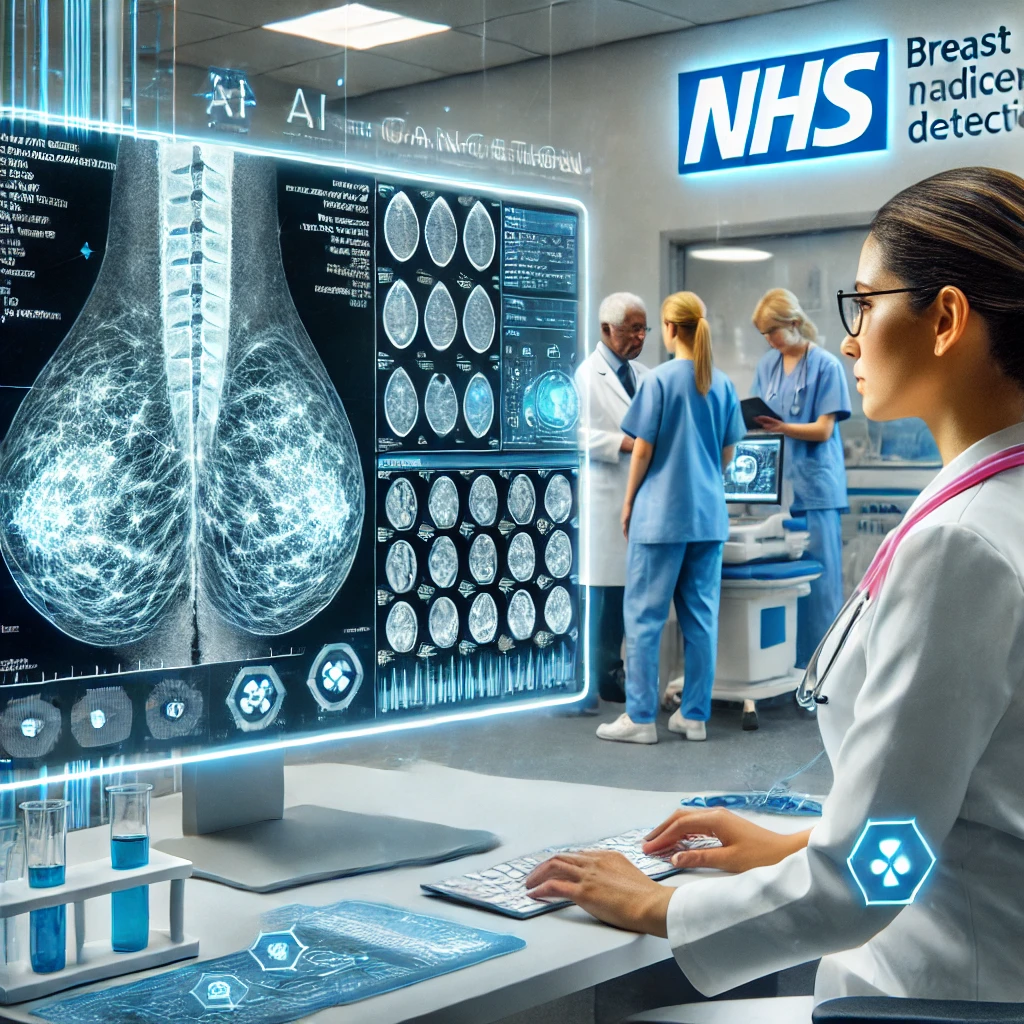The National Health Service (NHS) in the UK has launched a groundbreaking trial to evaluate the effectiveness of artificial intelligence (AI) in detecting breast cancer. The initiative, one of the largest of its kind, aims to determine whether AI can improve early diagnosis, reduce workload for radiologists, and ultimately save lives.
AI in Breast Cancer Screening: A Game Changer?
Breast cancer is one of the most common cancers worldwide, with early detection being critical to improving survival rates. Traditional screening methods rely on mammograms analyzed by highly trained radiologists. However, with growing demand and a shortage of specialists, there is an increasing need for solutions that can enhance accuracy and efficiency.
AI-driven tools have shown promise in preliminary studies, demonstrating the ability to detect abnormalities in mammograms with accuracy comparable to human experts. By integrating AI into NHS screening programs, the trial seeks to assess its real-world impact.
Key Goals of the NHS AI Trial
The NHS trial will involve thousands of women undergoing routine breast cancer screening. The AI system will analyze mammograms and flag potential cases for further examination. The primary objectives of the trial include:
- Enhancing Accuracy: Assessing whether AI can improve cancer detection rates, reducing false negatives (missed cancers) and false positives (unnecessary follow-ups).
- Reducing Radiologist Workload: Evaluating how AI can assist radiologists in reading mammograms more efficiently, allowing them to focus on complex cases.
- Speeding Up Diagnosis: Exploring whether AI can shorten the time between screening and diagnosis, leading to faster treatment initiation.
- Ensuring Safety and Reliability: Determining whether AI systems perform consistently across diverse patient groups.
The AI Technology Behind the Trial
The AI tools being tested are developed by leading medical technology firms in collaboration with NHS hospitals and research institutions. These systems use deep learning algorithms trained on vast datasets of mammograms, enabling them to recognize patterns associated with breast cancer.
Several AI models have already undergone smaller trials, showing impressive results. Some studies suggest that AI can match or even surpass the performance of experienced radiologists in detecting cancers that might be missed by human eyes.
Challenges and Ethical Considerations
While AI holds great promise, the NHS trial will also examine potential challenges, including:
- Bias in AI Models: Ensuring the AI performs equally well across different demographic groups.
- Human Oversight: Balancing AI automation with expert validation to prevent over-reliance on technology.
- Patient Trust: Addressing concerns about AI decision-making and maintaining transparency in the screening process.
What This Means for Patients
If successful, this AI trial could revolutionize breast cancer screening in the UK and beyond. It could lead to earlier diagnoses, more efficient screenings, and better outcomes for patients. Additionally, it could help alleviate the radiologist shortage by streamlining workflows and reducing burnout.
The NHS remains committed to evidence-based implementation, meaning that AI will only be adopted if it proves to be safe, reliable, and beneficial to patients.
Conclusion
The NHS AI trial marks a significant step toward integrating artificial intelligence into mainstream cancer screening programs. As the trial progresses, its findings could shape the future of breast cancer detection, offering a powerful new tool in the fight against cancer. If AI proves effective, it could set a precedent for wider adoption across other medical fields, paving the way for a more efficient and technology-driven healthcare system.
For now, all eyes are on the NHS as it embarks on this ambitious journey to harness the power of AI for early cancer detection.
[SEO optimized]
[SEO optimized]


